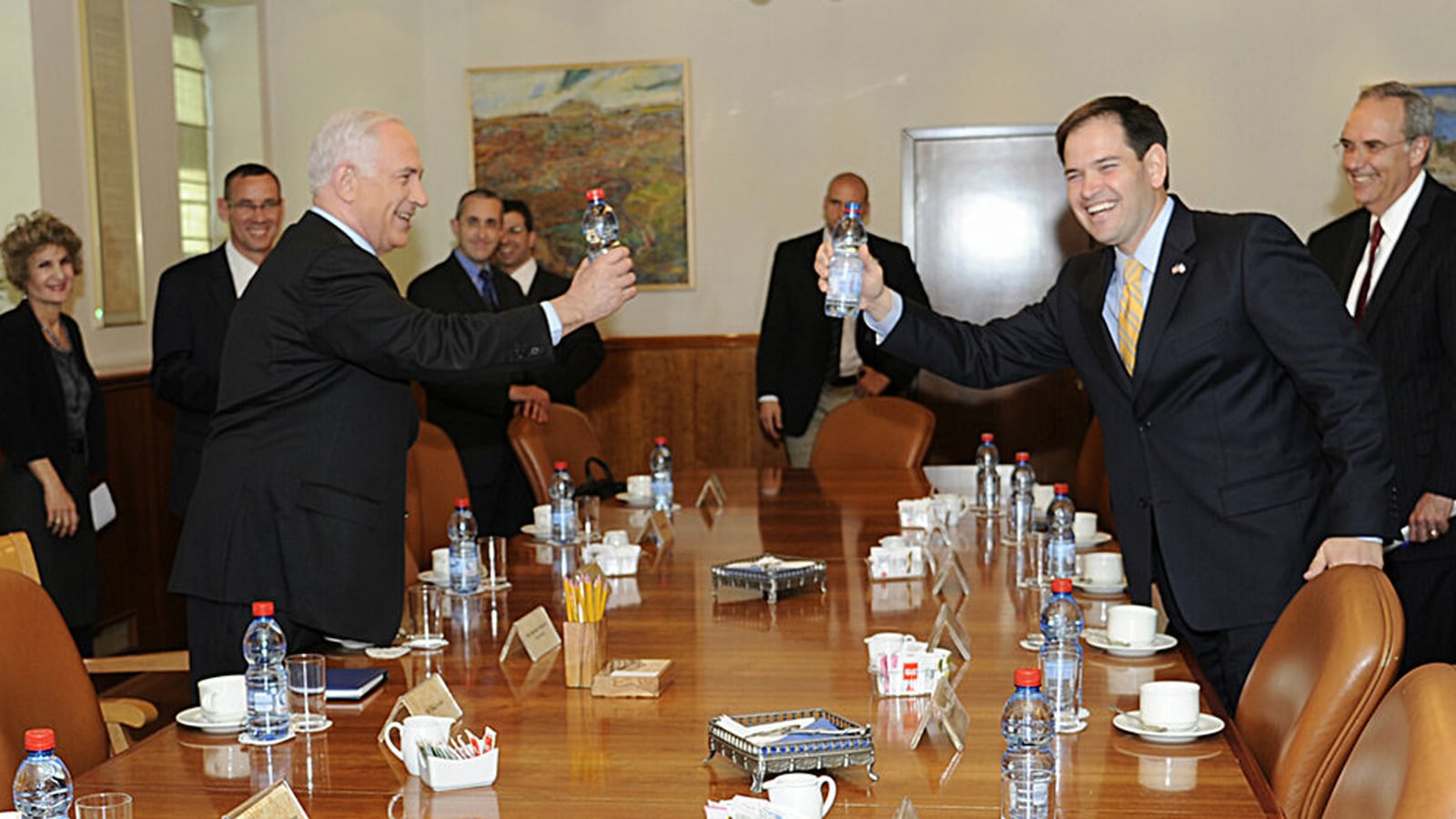One can imagine at some point in 2016, presidential candidate Marco Rubio regaling a room of pro-Israel donors at a $1,000-a-plate fundraiser about his trip—way back in February 2013—to the Jewish state. L’Chaim!

President Barack Obama and former pesident George W. Bush both culled similar material from their pre-presidency visits to Israel in election-year speeches to Jewish groups and other supporters. For Obama, it was his visit to a southern Israeli city that had been bombarded with Hamas rockets. For Bush, it was a helicopter tour of the Galilee.
This week, Rubio made his second visit to Israel and enjoyed a tour of an installation for the missile-defense system known as Iron Dome that shot Hamas rockets out of the sky during a brief war in November. The Florida senator saw the port city of Haifa and met with Israeli Prime Minister Benjamin Netanyahu and President Shimon Peres in Jerusalem. He even made time for Palestinian President Mahmoud Abbas.
At a meeting with Netanyahu, Rubio gaily mocked himself by toasting the Israeli leader with one of his famous water bottles.
In the meetings, Rubio was an attentive listener, according to one person in the room. As the Israeli prime minister talked about the threat posed by the Muslim Brotherhood, Rubio took it in and didn’t say much. “He was clearly sympathetic with Israel’s strategic dilemmas and understood fully what we face in the region,” this person said.
Rubio and Netanyahu have a few things in common, namely that both have clashed with Obama. Rubio has been sparring with the president over immigration reform, among other issues. Netanyahu’s relationship with Obama has been tested over everything from the construction of housing in the West Bank to the trigger for military action against Iran.
In public remarks, Rubio said, “There is no more important relationship for the United States, perhaps in the world but certainly in the region, than Israel.”
This is the kind of boilerplate that U.S. politicians often say about Israel. In Rubio’s case, it may have been aimed at Rand Paul, another Tea Party senator who visited Israel in January and is also expected to make a run for his party’s nomination in 2016. In the past, Paul has said he favors gradual cuts in foreign aid to Israel (which isn’t inconsistent with his libertarian ideals).
Next month, Obama is scheduled to visit Israel. Palestinian leaders have said they will press him to make a bold play to reinvigorate the moribund peace process. The Israelis have announced that they intend to give Obama the “medal of distinction,” one of the country’s highest honors.
Rubio hasn’t offered much in terms of specific policy. But on the question of the peace process, he sounded a skeptical note. In an interview Wednesday he told Sky News, “It is difficult for Israel to engage in a peace process of the kind that everyone agrees we need, if they feel as insecure as they do right now and rightfully so. You see the instability in Egypt. You see what’s happening in Syria. You have concerns about Lebanon and Hezbollah. And of course you have concerns about the Iranian ambitions.”
Next month, the Israelis could find out if President Obama feels the same way.





